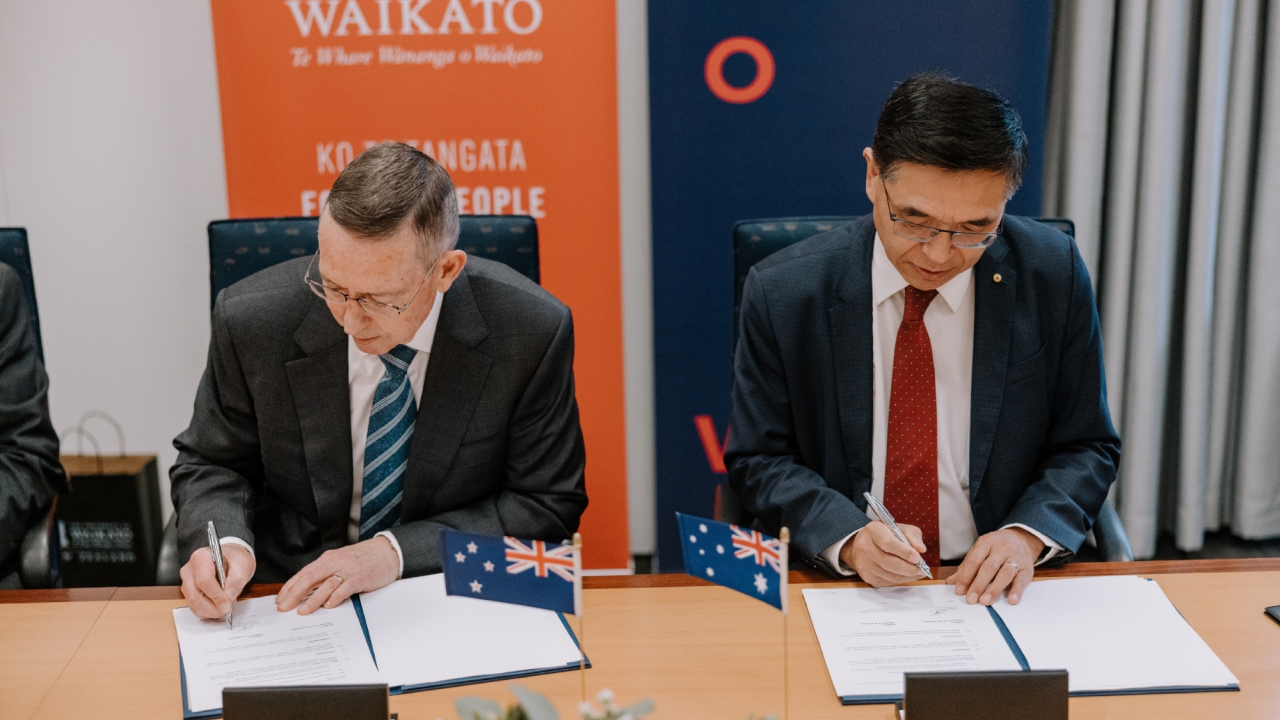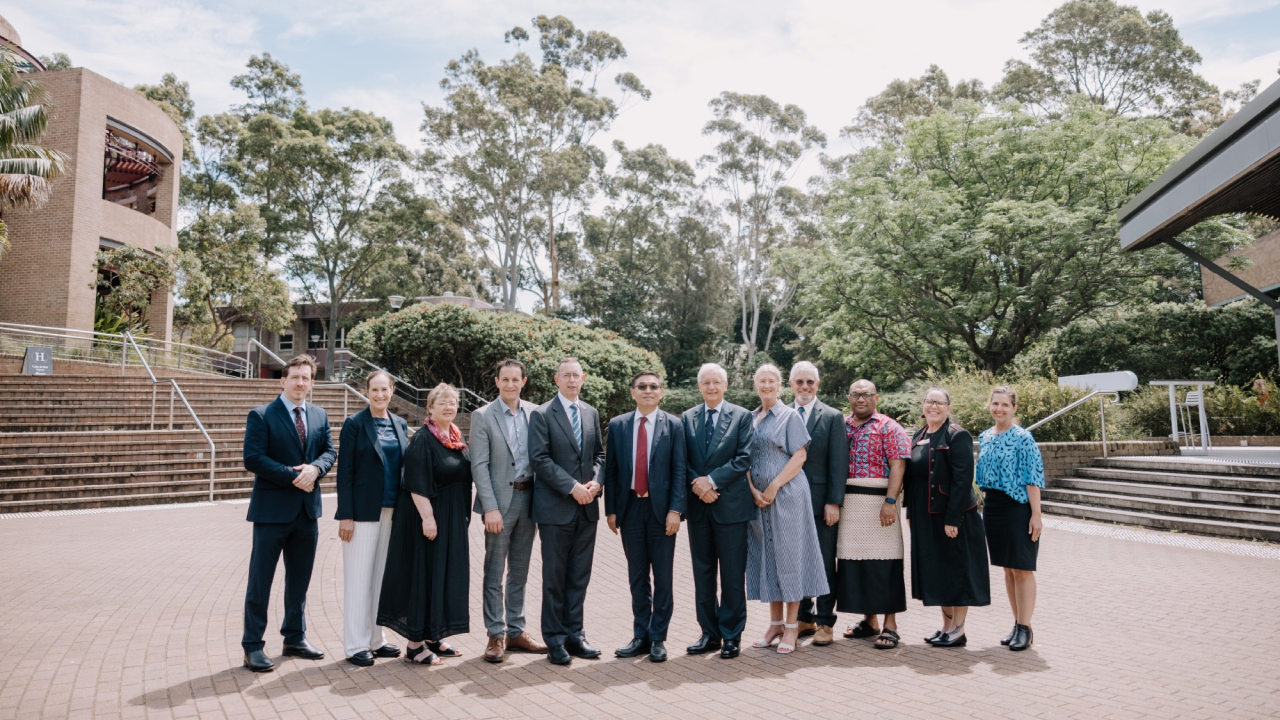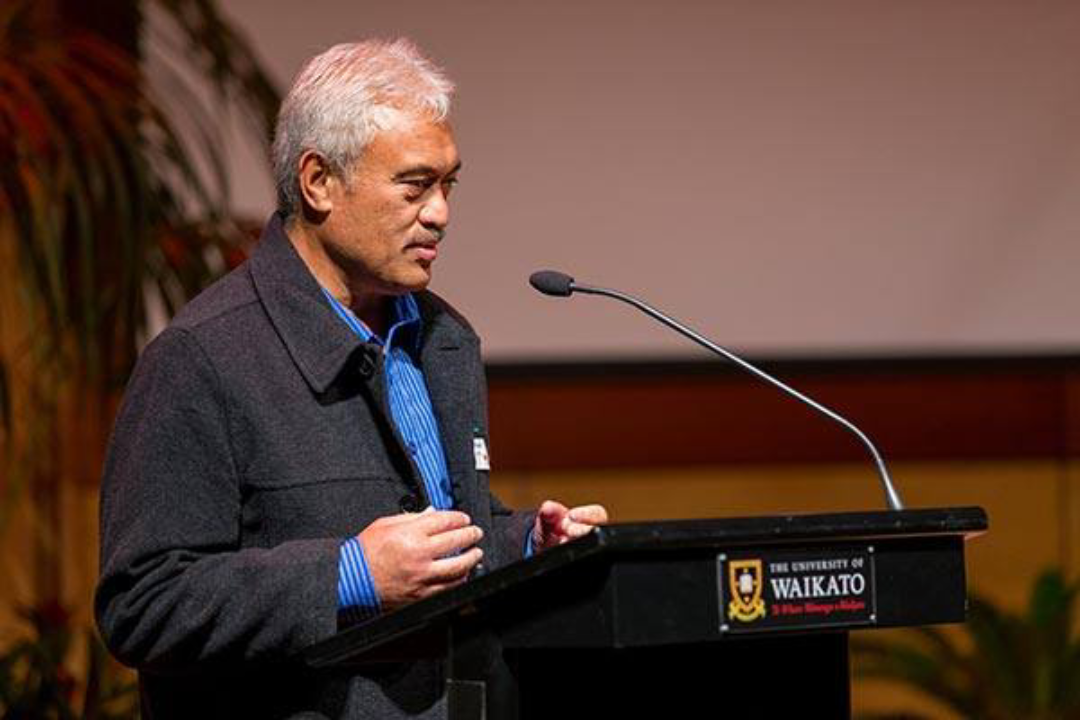The University of Waikato will partner with experts in rural and regional health education from the University of Wollongong to help shape the curriculum for the New Zealand Graduate School of Medicine.
On Friday representatives from Waikato and Wollongong signed an MOU formalising the collaboration, which will draw on Wollongong’s experience in regional medical education to develop the programme for Waikato’s newly approved medical school.

University of Waikato Vice-Chancellor Professor Neil Quigley and University of Wollongong Vice-Chancellor and President Professor Max Lu.
Established in 2007, the University of Wollongong’s Graduate School of Medicine has a proven track record of educating doctors to work in regional and rural communities, which has helped address critical health workforce shortages in Australia.
University of Waikato Pro Vice-Chancellor Health Professor Jo Lane says Wollongong’s outstanding record of medical workforce outcomes makes it a natural partner for the New Zealand Graduate School of Medicine.
“Wollongong has demonstrated that it is possible to design a medical programme that changes where and how doctors choose to practise,” Professor Lane says.
“Their experience gives confidence that we can achieve similar results in New Zealand, creating a programme that meets the needs of our communities.”

Teams from the University of Waikato and the University of Wollongong on campus at Wollongong after the signing of the MOU.
Graduate-entry medical programmes, which require students to already hold a bachelor’s degree, have proven to be highly successful in targeting areas with specific need, such as rural and primary care shortages. While they are the most common model of medical education in Australia, the New Zealand Graduate School of Medicine will be New Zealand’s first graduate-entry medical school.
New Zealand Graduate School of Medicine staff will collaborate with Wollongong’s medical programme staff to support the development of an innovative, digital-first medical curriculum that is responsive to community needs and designed to strengthen primary care and rural health workforce outcomes, while advancing health equity.
Data from the Medical Deans of Australia and New Zealand Medical Schools’ Outcomes Database shows Wollongong medical graduates are 1.5 times more likely to work in rural or regional areas and 1.8 times more likely to specialise in general practice when compared to graduates from all Australian medical schools.
University of Wollongong Vice-Chancellor and President Professor G.Q. Max Lu AO says the partnership reflects Wollongong’s global outlook and its success in addressing health workforce needs in regional and rural communities.
“At the University of Wollongong we believe in thinking local, acting global and creating impact through genuine partnership,” Professor Lu says.
“Our rural medical programme model being deployed at Waikato is a proud moment. Our universities share a mission to strengthen the health workforce and improve primary care in regional and rural communities, and we look forward to seeing a similar positive impact in New Zealand.”



